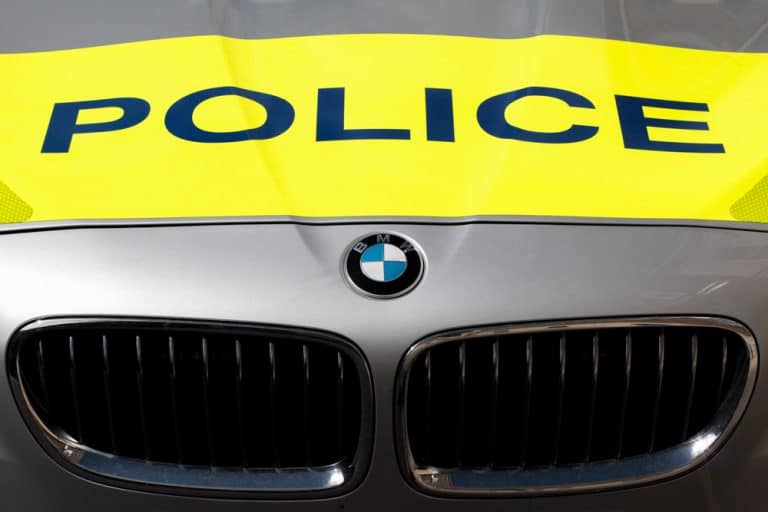Newsnight’s Emily Maitlis showcased the UK’s denial of its own systemic racism
A week after we saw Derek Chauvin kill George Floyd in front of a camera he knew was recording, Emily Maitlis asked George the Poet on Newsnight: “But you’re not putting America and Britain on the same footing […] our police aren’t armed, they don’t have guns, the legacy of slavery is not the same, we have had a report many years ago looking at institutional racism and, you would hope, reversing or aiming to open that up, it’s not the same is it?” Here is why ignoring the UK’s denial of its own racism is as disingenuous as ignoring the US’ police brutality and racism.
“It’s not the same, is it?”—this is the language of denial that infiltrates almost all mainstream discussions about race in the UK. George the Poet had, at the beginning of this interview, outlined that although black people only make up 4 per cent of the UK population, they represent 40 per cent of the poorest households.
George the Poet also highlighted that black and brown people account for 50 per cent of young offenders in prison—this exponential rise taking place at a time when youth imprisonment in general had fallen by a third. In the face of clear examples of the structural and systemic racism black people face, it is therefore dishonest to say “but our police don’t have guns” as a means of separating the experiences of black people in the UK and the US.
The UK police, even without guns, kill black men at a disproportionate rate. The lack of guns did not save Sean Rigg, Rashan Charles, Ibrahima Sey or Sheku Bayoh.
It is interesting to watch the UK’s reaction to race rebellions. While it is true that the UK is definitely not as armed a country as the US, the lived experiences of black people in Britain bears significant parallels to those in America.
A report released by the American Civil Liberties Union (ACLU) in April 2020 stated that a black person in Minnesota, the state in which George Floyd was killed, was 5.4 times more likely to be arrested for marijuana possession between 2010 and 2018. And this was despite black and white people having comparable usage of the drug in the state.
In the UK, The Colour of Justice Report from 2018 highlighted that black people were 9 times more likely to be stopped and searched for drugs despite using drugs at a lower rate than white people. My point is: the statistics are out in the open, and yet, Maitlis referenced the 1999 Macpherson report in her interview, ignoring the fact that things largely remain the same in 2020. It seems that rather than investigate institutions, Britain instead interrogates black people about the credibility of their assertions.
The criminal justice system is one area where we see black people being treated differently, beginning with the initial engagement with the police and all throughout their court proceedings, at which they receive harsher sentences than their white counterparts. However, we also know that black children are excluded from mainstream education at a higher rate than white children.
We know there is a dearth of black people in leadership roles in media, law, finance and even sports. As a black person who arrived in this country as an asylum seeker and went on to become a barrister, I and many others can tell you countless stories of exclusion and outright racism.
You do not have to have a knee on your neck for over 8 minutes to have experienced violence. There is violence being perpetrated by school exclusions, by underemployment, unemployment, immigration detention and a lack of PPE in the midst of a global pandemic.
There is also violence in the way one minimises racism. Just try to remember the way black women were shouted down by mainstream media for saying the vitriol directed at Meghan Markle was because she was black. In the UK, as well as in the US, there is no desire to look beyond the surface. Why are commentators so interested in white working-class students having low grades at school while never mentioning that these white graduates who underachieve academically somehow manage to have higher employment rates than black students with equivalent grades?
These things matter. They matter because the death of George Floyd is not only about police brutality. It is about the life opportunities of black people in the towns and cities that they live in. On 31 May the Governor of Minnesota, Tim Waltz, outlined how Minnesota actually stands at the top or close to the top on a number of rankings in the US due to the quality of its public schools, personal income of its residents, homeownership rates, life expectancy and happiness.
But all these rankings were only true if you were white. If those rankings only focused on Minnesota’s black residents, the state would be at the bottom. This gives some insight into how different races can live completely different lives in the same space. This is what is happening in the UK and pretending that we don’t have a problem just because the police aren’t armed is not going to cut it.
To experience institutional racism and repeated micro-aggressions and then have to constantly debate our reality is violent. There aren’t two sides to this argument: white supremacy and racism exist. Diversity and inclusion literature and meetings are not the revolution, the real work is to be done by white people.
Dismantle your privilege, hire black people, magnify black people’s work and respect our humanity without qualification. Only when these things are done, without the prompting of black people, will real change materialise. It’s up to you now.





